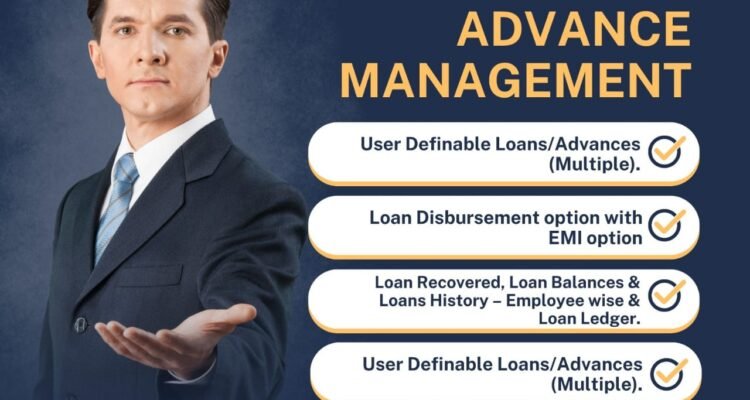From Kirana to High Street: Retail Software Solutions Driving Growth in Gurugram
In the bustling commercial hubs of Gurugram, the retail industry is undergoing a quiet revolution. From corner kirana stores to upmarket fashion boutiques in CyberHub and Sector 29, businesses are ditching traditional billing methods and embracing smart billing software. This shift is more than a passing trend—it represents a broader digital transformation driven by convenience, accuracy, and the demand for real-time data analytics.

The Digital Push Behind the Shift
Gurugram, one of India’s fastest-growing urban centers, is home to a rapidly digitizing economy. With increased smartphone penetration, affordable internet access, and growing tech-savvy customers, the need for quick, accurate, and intelligent billing systems has skyrocketed. Retailers, small and large, are recognizing that manual billing and cash registers no longer meet the demands of modern retail operations.
Smart billing software integrates seamlessly with point-of-sale (POS) systems, inventory databases, and customer relationship management (CRM) tools, offering an all-in-one solution. This technology provides features such as auto tax calculations, barcode scanning, e-invoicing, real-time inventory tracking, and even integration with UPI payment gateways. The result is a smooth, efficient, and transparent transaction experience.
Benefits of Smart Billing Software for Gurugram Retailers
1. Efficiency in Billing Operations
Retailers in Gurugram face high footfall, especially in malls and marketplaces. Smart billing software minimizes checkout time by automating itemized billing, scanning products, applying discounts, and generating GST-compliant invoices within seconds. This increases staff productivity and improves customer satisfaction.
2. Inventory Management
One of the biggest headaches for traditional retailers is keeping track of inventory. Smart billing software automatically updates stock levels with every sale, generates low-stock alerts, and provides analytics on fast-moving and slow-moving products. This helps retailers maintain optimal inventory and avoid overstocking or understocking.
3. Reduced Errors and Fraud
Manual billing is prone to human errors, which can lead to losses or customer dissatisfaction. Smart billing software ensures precision in price calculation, taxes, and discounts. Many platforms also come with audit trails and permission-based access control, reducing internal fraud.
4. Customer Engagement
Retail software in Gurugram increasingly includes loyalty program modules, digital receipts, and personalized offers based on purchase history. This builds better customer relationships and increases repeat business—a critical aspect for long-term success.
5. Regulatory Compliance
With the rise of e-invoicing and GST norms, compliance has become essential. Smart billing software ensures that all invoices are tax-compliant, digitized, and easily accessible during audits or financial reviews.
Real-World Examples in Gurugram
Many independent retailers in markets like Galleria and South Point Mall have transitioned to smart billing software. For example, a popular bakery in Sector 56 implemented cloud-based POS software integrated with its website and Swiggy orders. The result? A 40% improvement in order accuracy and a 25% rise in monthly sales thanks to better inventory control.
Similarly, an electronics retailer in MG Road deployed a multi-device billing system, allowing staff to use tablets for checkout during peak hours. The streamlined operations led to reduced wait times and increased customer satisfaction.
Key Features Retailers Are Looking For in 2025
In 2025, Gurugram retailers are no longer satisfied with basic billing functions. The expectation is for smart billing software to include:
- Multi-location sync: Useful for retailers with multiple outlets
- Cloud-based access: Enables billing from any device, anywhere
- Integration with e-commerce platforms: Seamless order and inventory management
- AI-powered sales analytics: Forecasting, demand prediction, and customer trends
- Multi-language interface: Catering to diverse staff backgrounds
The Role of Local Tech Providers
Several Delhi-NCR-based companies are tailoring retail software in Gurugram businesses. These providers offer local support, on-site training, and customized modules suited to the city’s diverse retail ecosystem. With competitive pricing and scalable solutions, even small traders are finding it feasible to upgrade.
Challenges in Adoption and Overcoming Them
Though the advantages are clear, the transition hasn’t been entirely smooth for all. Older retailers face resistance due to:
- Lack of digital literacy
- Initial costs of software and hardware
- Fear of operational disruption
However, training programs, government incentives for digital adoption, and increasing peer adoption have helped ease these concerns. Retail associations in Gurugram have even hosted workshops to demonstrate the long-term cost savings and operational benefits.
Future of Retail Tech in Gurugram
Looking forward, the retail landscape in Gurugram is only expected to become more technologically advanced. Augmented reality (AR) for in-store experiences, voice-assisted POS systems, and AI-driven recommendation engines are just the beginning. Smart billing software will play a foundational role in enabling these future advancements.
Conclusion
As Gurugram continues its journey toward becoming a smart city, retailers are embracing smart billing software not just as a trend, but as a strategic necessity. The benefits—ranging from operational efficiency to customer engagement—are undeniable. With increased competition and rising customer expectations, those who fail to digitize risk falling behind.
Whether it’s a boutique in DLF Phase 1 or a grocery store in Sushant Lok, the move to smart billing software is empowering Gurugram retailers to operate with greater precision, agility, and profitability. In 2025, it’s not just about selling products; it’s about selling them smarter.
